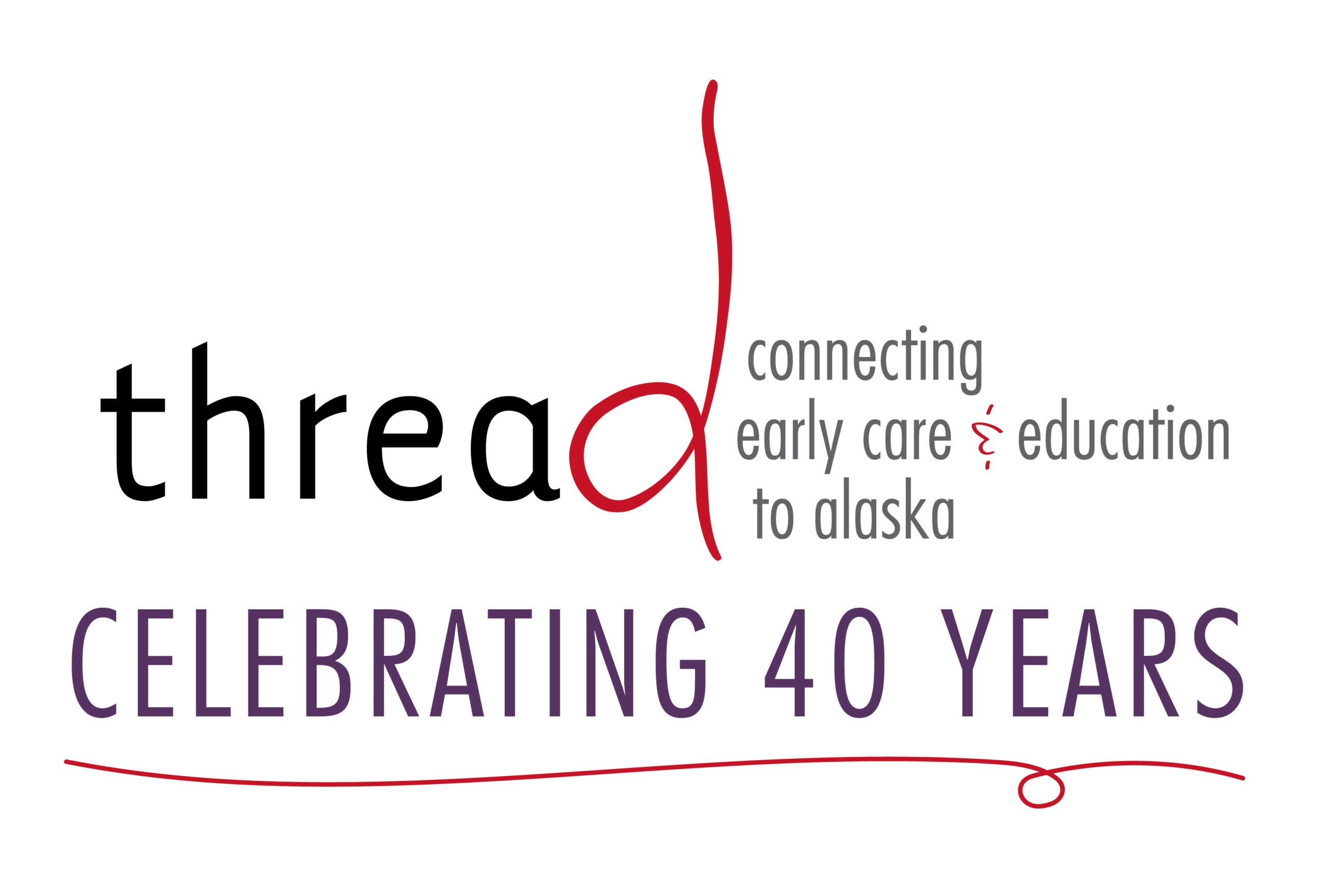Policy Brief
Provide Pre-Kindergarten in a Mixed Delivery System
High quality Pre-K programming prepares young children for school and life. thread believes delivering Pre-K a mixed delivery system is an efficient, sustainable solution for Alaska. A mixed delivery system uses policies, program design, and funding mechanisms to deliver publicly funded Pre-K in a variety of school and community-based child care settings.
Background
Pre-K programs, also called pre-kindergarten, preschool, or
pre-elementary, are voluntary educational opportunities for children preparing for the transition to kindergarten. Pre-K is typically delivered in a partial day program during the school year. (Mention Publicly funded, public school setting?) High quality Pre-K programming provides meaningful educational, social, and emotional experiences for young children.
Without intentional design and planning, publicly funded Pre-K programs can create unintended challenges for parents and child care providers. For example, shifting 3-5 year olds from community-based child care centers into free Pre-K programs creates financial challenges for child care centers (because it lowers enrollment). Although free Pre-K is helpful to some families, a partial-day, school year only program does not match the working hours of most parents seeking child care. Additionally, child care providers, providing the same quality and type of care as their Pre-K counterparts, typically make less money.
thread supports delivering publicly funded Pre-K in a variety of school and community-based child care settings. This is known as a mixed delivery system, and is the best practice model used by almost all publicly funded Pre-K programs across the country.
Allowing publicly funded Pre-K programs to be delivered in a mixed-delivery system means that community-based child care providers, in addition to public schools, are eligible to participate as Pre-K providers.
A mixed-delivery system:
- encourages more efficient use of public funds
- supports child care businesses
- promotes wage parity among early childhood educators
- provides children opportunity for continuity of care and a high-quailty early education
- gives parents choice so they can find a Pre-K provider that meets their family needs
Policy in Action
Georgia Georgia’s mixed-delivery model allows for state-funded Pre-K to be provided at public schools, private child-care centers, faith-based organizations, Head Start agencies, state colleges and universities, and military facilities. (decal.ga.gov/PreK)
Colorado
Colorado allows state-funded Pre-K to be delivered in public schools, private community settings, or a combination based on community needs. (state.co.us)
Other
- Examples of Mixed Delivery Early Care and Education Systems (Bipartisan Policy Center)
- Mixed-Delivery System is the Most Sustainable and Efficient Solution to Meet Policy Objectives (Early Care & Education Consortium)
Impact
Imagine a child whose parents work non-traditional hours. As she turns four-years-old she would be able to stay with the same child care provider and receive Pre-K instruction a few hours each day from a certified teacher who is shared across multiple programs. The educational portion of the day is paid for through public Pre-K funding and the remainder of the day is funded though child care subsidies based on a sliding scale.
A mixed-delivery system is a sustainable and efficient way to deliver high-quality early childhood education to all Alaskans. It promotes more efficient use of public funds, allows parents a choice of Pre-K options, and encourages pay equity for early childhood educators across all settings.

